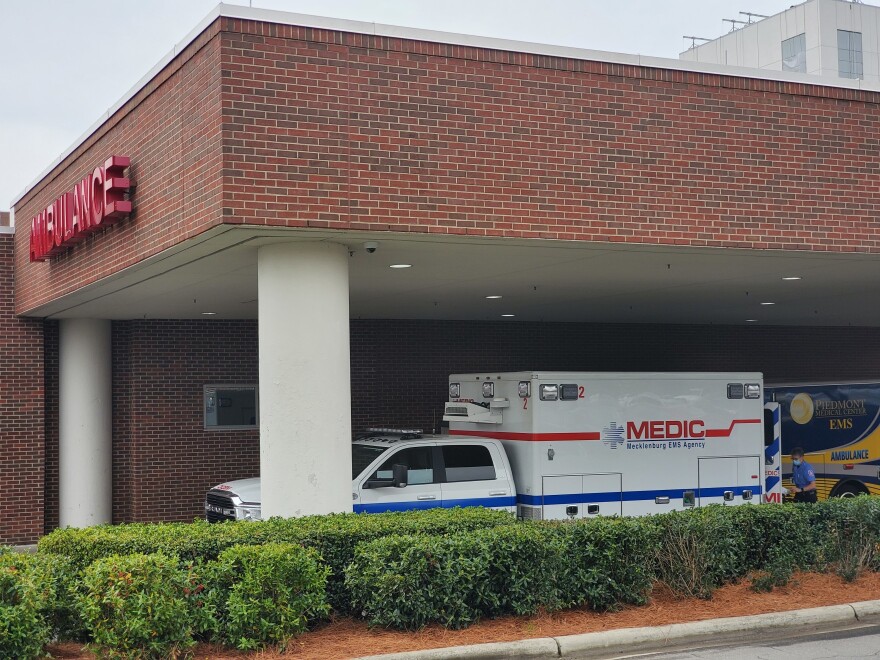Mecklenburg County's EMS agency, Medic, says its staff shortages have continued to grow in 2022, and the agency is about to lose more help as the Federal Emergency Management Agency withdraws eight ambulances and 16 staff members it sent in January to help Medic through a COVID-19 surge fueled by the omicron variant.
The FEMA teams are scheduled to leave on Wednesday. The withdrawal comes as COVID-19 cases and emergency calls in Mecklenburg County have been on the decline, while staff vacancies remain high.
Medic's deputy director, Jonathan Studnek, said during the January omicron surge, the agency was averaging more than 40 calls a day related to COVID-19. Meanwhile, the agency had staff vacancies in the "mid to high 60s" and more than 30 workers were calling out sick on a daily basis.
By comparison, the agency said in November it was short about 38 paramedics and emergency medical technicians, or EMTs, and was transporting some 25 COVID-19 patients per day.
In recent weeks, some of those metrics have improved, Studnek said. As of Thursday, the number of calls related to COVID-19 had dropped to about six or seven per day, and only one employee was in isolation. However, Studnek said, the agency's shortage of field workers has continued to grow and has now reached 73 vacancies.
"Folks got tired of working in EMS. It's a stressful job, stressful time. Folks moved on to look for other opportunities," Studnek said.
Since December, Medic has hired three new classes of EMTs, composed of about 10 students each, but Studnek said the new hires were still outpaced by the number of workers leaving.
Medic received help in January when FEMA sent four ambulances and eight EMTs to the county. Studnek said in mid-February that the agency received another three ambulances and six EMTs, along with a fourth ambulance and two more EMTs that have been on standby.
The FEMA teams have been averaging about 34 transports per day, Studnek said, and have been a significant help to the agency.
"The use of those FEMA ambulances have really given our providers their first break since the pandemic started two years ago," Studnek said. "They allow our folks to make sure they have an opportunity to grab some lunch or dinner, use the restroom, take a moment to do a good patient care transfer at the hospital and have a more even workload and pace."
However, the extra FEMA ambulances and staff are only contracted to remain in the county until March 2.
Studnek said Medic remained focused on recruiting efforts at local community colleges, and was planning to launch a new program in the coming weeks that will allow people without EMT certification to work for Medic in an operational support role — such as restocking ambulances at the end of the day and making sure equipment is maintained and ready for use.
Studnek said Medic hoped to have their first eight to 10 people enrolled in that program within "the next couple of weeks."
Meantime, Medic will continue to follow revised response times that say patients classified as "low acuity," meaning they don't need immediate medical attention, may have to wait longer than usual for an ambulance, possibly up to an hour.
Medic is also continuing to offer to pay for people to use the rideshare service Lyft to get to the hospital. Studnek said the agency has so far paid for 184 Lyft trips, averaging about $15 each.
Studnek said patient outcomes have remained about the same with these changes in place, and while the agency will continue to try to close the staff shortage, he felt there was still a long road to go for Medic to recover from its pandemic losses.
"When you're facing staffing shortages in excess of 70 employees, a slow training pipeline, a lack of interest in the healthcare profession in general derived from what folks have seen over the last two years, it's going to take us a long time to recover from this pandemic," he said.




